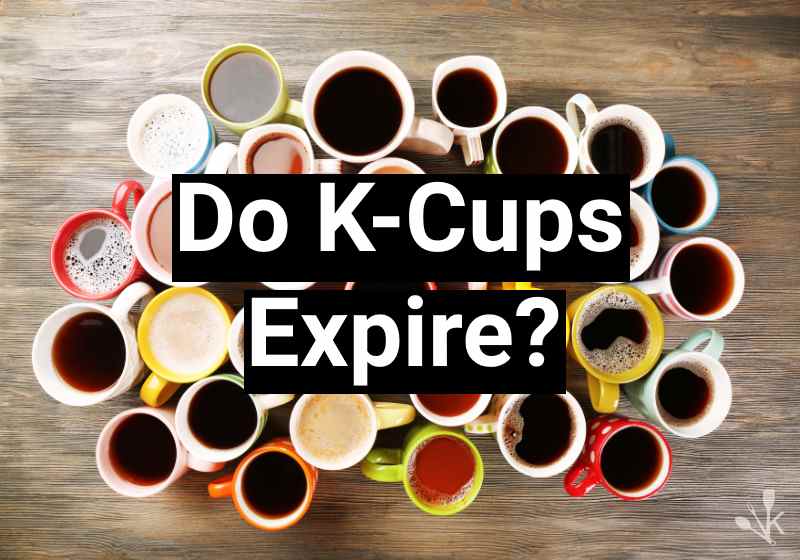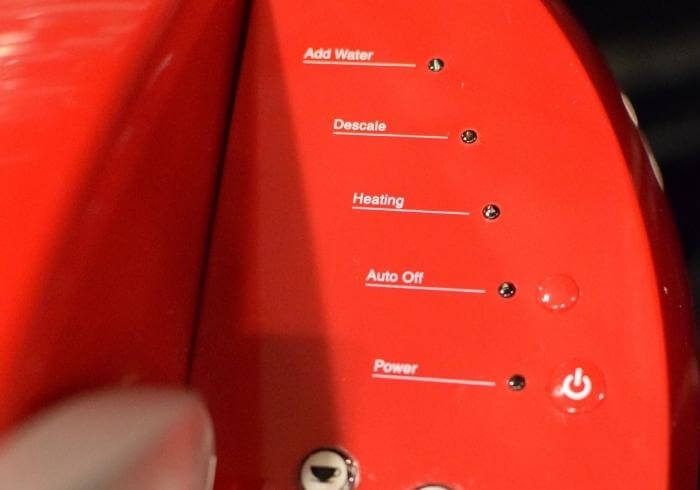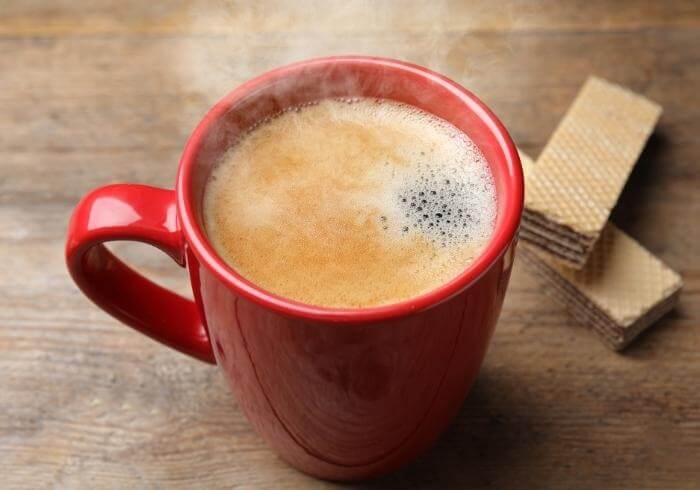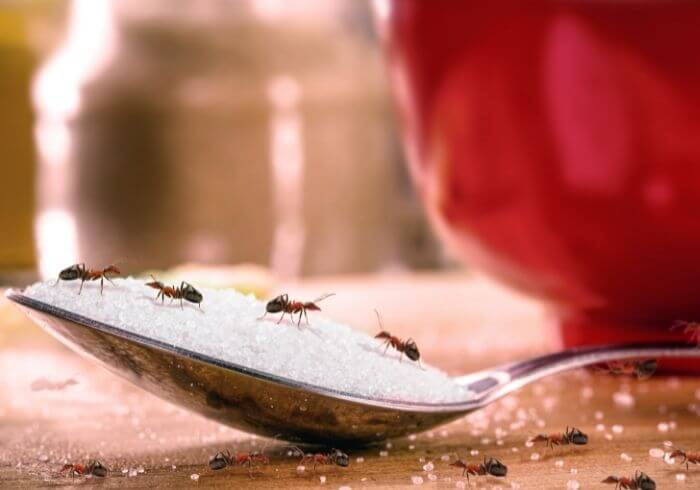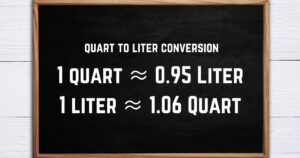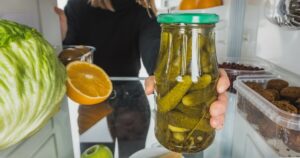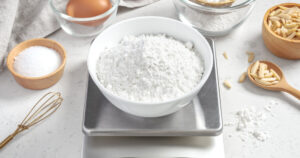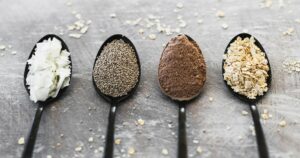As more and more people choose to use Keurig coffee makers for their convenience and unparalleled variety, questions naturally arise. One of the most frequently encountered questions is “Do K-Cups expire?”
Although K-Cups won’t keep your coffee deliciously fresh and at optimal quality forever, they will keep it safe to consume indefinitely, if kept intact. After the best by date, the quality may start to decline, so we recommend using it within a year of that date for the best possible flavor and aroma.
How Long Do K-Cups Last After The Expiration Date?
On the side of each K-Cup, you will see a “best by” date. It may be a bit difficult to see because it is usually simply impressed into the plastic or printed in an ink color that fairly closely matches the plastic of the cup.
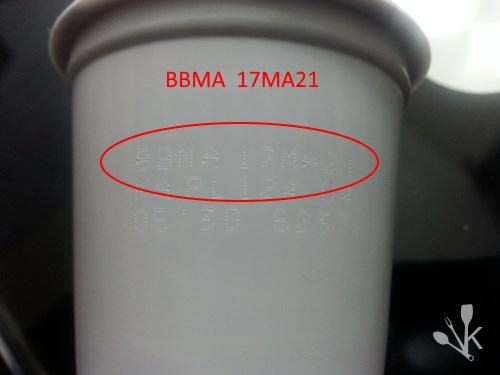
Do K-Cups go bad after the best by date? No. This date does not indicate the date when the product will “go bad”. It indicates the last day that the manufacturer recommends using the product with optimum results and flavor.

After this date, the manufacturer will not guarantee the flavor, quality, and safety of the product; however, you should not be excessively alarmed about safety.
If your K-Cups or Keurig K-Carafe pods have been properly stored and have not been damaged, you should be able to use them safely long past this date. While there is some chance that the ingredients may taste a bit stale past the best by date, it is a slim chance.
The packaging processes used to seal the ingredients into K-Cups are very effective, and you can expect the contents to be perfectly fine for at least a year following the printed date.
How Long Are K-Cups Good For?
To answer this question, it’s important to realize that the word “fresh” is relative. In terms of coffee, even if you were to brew your K-Cup the day after it was packaged, it would not be the freshest possible coffee.
The moment coffee is ground, it begins to decompose and lose flavor. For this reason, if you want a truly fresh cup of coffee you’ll need to purchase your own beans, keep them frozen and grind and use them as needed.
In terms of usability, it’s best if you use your K-Cups by the recommended date; however, you are unlikely to notice much difference in the quality of the product for up to a year after that date.
SEE ALSO: Can You Reuse K-Cups?
Beyond that, as long as the product has been safely stored it should remain safely usable but the quality may decline.
How To Store K-Cups
Just as with all dry goods, you should store your K-Cups in a cool, dry place. Good choices include a kitchen cupboard or your refrigerator or freezer.
Cool, stable temperatures, dry conditions, and protection against rough handling will keep your K-Cups in good condition and usable indefinitely.
Naturally, unsealed containers can also provide breeding grounds for germs and bacteria. If your K-Cups are damaged in any way or you see evidence that air or moisture has entered the K-Cup, you should not use it.
While air entering the cup will simply make the contents stale, moisture can introduce mold. Many people are severely allergic to mold, so you should never ingest any food or beverage that has been contaminated by it.
It’s likely you own a variety of K-Cups for different flavors or to cater for the variety of tastes of coffee drinkers in the household. Even if you stick to one blend consistently, you’ll be after a clever and tidy way to keep them close at hand.
K-Cup holders are ideal and come in a huge array of styles, from carousels and towers to drawers and stacks. You can display your attractive little cups in a tree or tuck them neatly away in a drawer.
This sleek back drawer system is divided into three drawers which hold 36 pods.
It features a heat-resistant top panel so it can sit right underneath your pod machine to save on counter space – without impacting the K-Cups tucked away inside.
Can You Freeze K-Cups?
Freezing opened coffee is not recommended by coffee aficionados. Luckily, K-Cups are already packaged and sealed up well, so won’t be compromised by the freezing process if kept intact.
If you’re keen to stock up on K-Cups and want to make sure they last the distance, it’s perfectly fine to store them in the freezer.
The Contents Of K-Cups Are Well Preserved
The coffee, tea or dry ingredients needed to create a hot beverage contained in K-Cups are preserved by a combination of two very effective methods.
First, ingredients are treated with liquid nitrogen which flash freezes them immediately and effectively. Once frozen, the contents are vacuum sealed in the K-Cups so that no air or moisture can enter.
Flash freezing holds the contents of K-Cups in stasis. Protection from air and moisture prevents natural decomposition and the development of mold. This, in turn, increases the shelf life of Keurig K-Cups.
As long as there is no perforation of the K-Cup and the vacuum seal remains intact, the ingredients should be usable for years.
This is not to say that they will be at their best, though.
SEE ALSO: Best K-Cup Coffee
Is Nitrogen A Safe Preservation Method?
As we’ve mentioned, the contents of K-Cups are preserved by a combination of vacuum sealing and nitrogen treatment. Vacuum sealing is completely safe. It consists of simply “best by” date from a container and sealing it tightly to prevent contamination.
Before K-Cups are vacuum sealed, the contents are flash-frozen with liquid nitrogen.
You may have heard conflicting reports about the safety of liquid nitrogen because it is extremely unsafe to ingest.
Recently, there have been a few stories in the news about people who suffered intestinal damage after drinking beverages containing liquid nitrogen. This is an extremely unsafe use of this chemical that completely contraindicates recommended, safe usage methods.
Liquid nitrogen has many safe medical and culinary uses.
Because it is a colorless, odorless cryogenic (cold) chemical that is non-flammable, it is often used by doctors and surgeons to fast freeze and eradicate unwanted tissue growth. When used correctly by a trained doctor, this is very safe.
In culinary use, liquid nitrogen is used to freeze alcohol, flash freeze herbs, make ice cream quickly, and super cool glassware and dishes for serving cold foods and drinks. It is also used to flash freeze ingredients such as those found in K-Cups during the packaging process.
Using liquid nitrogen in food preparation is perfectly safe, as long as all of the liquid nitrogen has completely evaporated from the food before it is consumed. This is certainly the case when it is used to preserve the ingredients of K-Cups.
There is no liquid nitrogen residue be found in the contents of these handy and convenient cups.
The Bottom Line: Do K-Cups Go Bad Or Expire?
Basically, you needn’t worry too much about K-Cups going bad. When they are properly stored at a stable temperature under dry conditions, they should remain usable for a very long time. This is good news if you are a bargain shopper!
Even though using the Keurig One-Cup Coffee Maker is quite a bit cheaper than buying your coffee at a coffee bar, it can still cost you a pretty penny!
Armed with a solid knowledge of K-Cup shelf life, you can feel comfortable taking advantage of sales and special offers to stock up on all your favorite K-Cup varieties at considerable savings.

